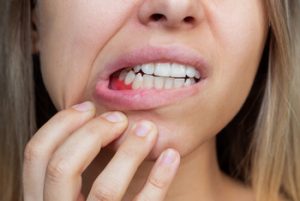Experiencing toothache during pregnancy is more common than many expect. Hormonal shifts, changes in diet, and altered immune responses all affect oral health. When discomfort strikes, it can disrupt sleep, eating, and focus, yet many pregnant women are unsure what’s safe. Knowing what to use for toothache during pregnancy can make a notable difference in both comfort and confidence. Acting early and choosing the right solutions is vital. This guide shares targeted strategies to ease discomfort while protecting your baby’s health.
Why You Should Never Ignore Dental Pain During Pregnancy
Pregnancy can mask or complicate dental symptoms. Knowing when to act ensures your safety and peace of mind.
 See a Dental Professional Promptly
See a Dental Professional Promptly
Tooth pain during pregnancy should never be brushed aside. If you feel discomfort in a specific area or experience swelling, contact your dentist immediately. Most dental procedures can be safely managed during the second trimester with minimal risk. Let your provider know you’re expecting so they can tailor your dental treatment.
Dental Visits Safe and Essential
Many women avoid dental care while pregnant, fearing it may harm the baby. However, professional treatment is often necessary to prevent bigger problems. A dental visit is not only safe but recommended if you are dealing with pain or visible damage. Always follow advice from a qualified healthcare provider.
Delaying Care Can Complicate Matters
An affected tooth left untreated can worsen rapidly. Gum disease, infection, or decay may spread, affecting not only oral health but also your body’s ability to support a healthy pregnancy. Timely attention can prevent long-term issues and reduce the need for invasive treatment later on.
Safe At-Home Measures to Manage Pain Until Your Appointment
While waiting for a professional assessment, some home-based strategies can reduce symptoms without risk to your baby.
Use a Cold Compress
A cold compress placed on the cheek helps reduce inflammation and offers temporary pain relief. Limit each session to 15 minutes, and avoid applying ice directly to the skin. This method is especially helpful when experiencing unbearable tooth pain or swelling.
Rinse with Saltwater
Rinsing with warm salt water is a gentle way to calm inflamed gums and flush out lingering bacteria. Simply stir a teaspoon of salt into a glass of warm water and rinse slowly. This can ease tenderness and dislodge trapped food without harming the gum tissue.
Be Mindful of Over-the-Counter Medications
Not all over-the-counter medications are safe during pregnancy. Paracetamol may be used cautiously, but avoid anti-inflammatories unless cleared by your dentist. Always consult a dental professional before taking anything for tooth pain.
What Causes Toothache in Pregnancy? Understanding the Root Issues
Pinpointing the underlying cause helps guide safer, more effective care and prevention.
Hormonal Changes and Gum Problems
Pregnancy hormones influence how the body responds to plaque, often worsening inflammation. This can lead to swelling, sensitivity, and even loose teeth. These symptoms may indicate pregnancy gingivitis, a condition that affects many pregnant women.
Increased Risk of Tooth Decay
Hormonal shifts combined with changing habits may increase the risk of tooth decay. Food cravings and altered brushing patterns are common culprits. Morning sickness introduces stomach acid into the mouth, which also wears away enamel and makes teeth vulnerable.
Bleeding Gums and Gum Overgrowth
You may experience bleeding gums or a sensation that the gum tissue grows more than usual. These symptoms are commonly reported in pregnancy and require professional monitoring. Left untreated, they may lead to more serious oral issues.
Nutrition, Habits, and Daily Care That Reduce Dental Risks
Small adjustments to your routine can make a big difference in reducing discomfort and avoiding complications.
Stick to a Healthy Diet
Frequent snacking on sweets or processed food can encourage decay. A healthy diet rich in calcium, fibre, and vitamins helps strengthen your teeth and prevent tooth decay. Choose options like leafy greens, cheese, and almonds to maintain balance.
 Maintain a Steady Oral Health Care Routine
Maintain a Steady Oral Health Care Routine
Brushing teeth twice everyday with fluoride toothpaste and flossing every night is essential. If brushing triggers nausea, switch to a milder flavour or brush at different times. Consistency supports long-term oral health and reduces oral ailments during pregnancy.
Schedule More Frequent Cleanings
Dental professionals often recommend more frequent cleanings for pregnant patients. This helps monitor for gum disease and manage early symptoms. Frequent cleanings also reduce plaque buildup, making it easier to avoid toothaches and oral disorders.
When Toothache Signals Something Serious
Sometimes, pain is a symptom of a condition that needs immediate attention. Knowing the warning signs ensures fast, safe care.
Gum Disease Can Escalate Quickly
Symptoms such as bleeding, redness, and persistent swelling may point to gum disease. This infection can progress if ignored and may even contribute to premature birth. Seeking dental care early supports a healthy pregnancy and reduces complications.
Watch for Tooth Mobility or Loose Teeth
If your teeth feel mobile or shift noticeably, it may be due to gum changes. While this is sometimes temporary, it could also indicate structural issues. A dentist can determine whether further care is needed.
Existing Dental Problems May Flare Up
Cavities or untreated damage may worsen due to the stress pregnancy places on oral health. If you’re aware of any existing dental problems, mention them during your appointment. Early detection prevents worsening symptoms.
Common Misconceptions That Could Delay Care
Many expectant mothers hesitate to act because of outdated or incorrect information. Clearing up the confusion helps protect your well-being.
Are Dental Visits Safe for Baby’s Health?
Yes, especially during the second trimester, when the baby’s organs are fully developed, and your discomfort is easier to manage. Avoiding needed treatment can lead to larger problems. Always disclose your pregnancy at the beginning of the visit.
Fluoride Use is Safe and Helpful
Using fluoride toothpaste helps strengthen enamel and avoid decay. Some worry about fluoride exposure during pregnancy, but the levels in toothpaste are safe and effective. Incorporating it into your oral care game is a smart move.
Not All Oral Care Content is Reliable
Online advice varies widely. Stick with credible sources such as information provided by your dentist. Unverified remedies may do more harm than good, especially during pregnancy.
Get Safe Toothache Relief That Supports a Healthy Pregnancy
Dental discomfort during pregnancy is treatable with care that protects both you and your baby. Whether it’s managing food cravings, dealing with bleeding gums, or adjusting to hormonal changes, tailored support can make the difference. Seeking professional medical advice ensures the care you receive is safe and appropriate for your stage of pregnancy. Prevention is key, from brushing to professional check-ups, and improved oral hygiene can help avoid tooth decay and minimise the risk of other oral ailments. Don’t wait for symptoms to worsen before seeking help.
Call our team today on 03 4828 7427 or 03 4828 7428 to schedule your appointment and get back to comfort with safe, trusted care.
Note: Any surgical or invasive procedure carries risks. Before proceeding, you should seek a second opinion from an appropriately qualified health practitioner.
References
https://www.medicalnewstoday.com/articles/dental-pain-in-pregnancy
https://www.betterhealth.vic.gov.au/health/healthyliving/pregnancy-and-teeth

 See a Dental Professional Promptly
See a Dental Professional Promptly Maintain a Steady Oral Health Care Routine
Maintain a Steady Oral Health Care Routine